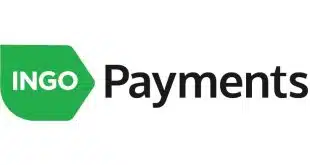The bare-knuckled fight between leading U.S. point-of-sale terminal manufacturer VeriFone Holdings Inc. and the big merchant acquirer Heartland Payment Systems Inc. keeps on escalating, with four lawsuits in three courts now pending. Both companies continue to crank out press releases, letters from their chief executives, and other public-relations missives that portray the other as the bad guy. Caught in the middle are Princeton, N.J.-based Heartland's approximately 170,000 merchants representing more than 200,000 locations, many of which use VeriFone equipment. VeriFone says it won't support those merchants' terminals after Dec. 31 unless they register for free support from VeriFone, but Heartland vehemently insists it can support the equipment and accuses VeriFone of running interference. VeriFone and Heartland each attempted to spin as victories decisions made Monday in an emergency hearing in U.S. District Court in New Jersey, though they were essentially procedural or temporary rulings far ahead of any trial. Heartland, which is attempting to prevent VeriFone from courting its merchants, sued VeriFone on Friday, claiming false advertising. The court refused Heartland's request to stop VeriFone from publicizing its offer of free support to Heartland merchants using VeriFone equipment. VeriFone, however, agreed not to use Heartland's name in the online address of its Web site for Heartland's merchants?though the terminal maker says it did so on its own. “On the URL [address] issue, even though there is little chance of confusion, VeriFone voluntarily agreed not to use the Heartland trade name in its free-support URL,” a VeriFone spokesperson tells Digital Transactions News by e-mail. The New Jersey federal court scheduled an expedited hearing for Dec. 7. At that time, it is expected to consider Heartland's injunction request on false-advertising claims. It also will hear VeriFone's request to move the case to the U.S. District Court in San Jose, Calif., where VeriFone is based. Also Friday, VeriFone filed a second lawsuit against Heartland in California, this one contending a press release Heartland issued Nov. 3 was false and misleading. The California federal court is hearing the case that brought the feud into the public eye. That's the lawsuit VeriFone filed Sept. 9 alleging Heartland's new end-to-end transaction-encryption technology infringes on one of its patents (Digital Transactions News, Nov. 3). Heartland responded by suing VeriFone in a New Jersey state court on a host of allegations that include interference with its business and defamation. VeriFone also is attempting to get the New Jersey state case consolidated into its first federal case. Heartland claims the dispute arose because it refused VeriFone's alleged demand that VeriFone be the sole supplier of its so-called E3 terminals with the new encryption technology. Instead, Heartland is using Taiwan-based Uniform Industrial Corp. (UIC) and its Chinese subcontractor, IKON. Heartland says the Asian manufacturers will get the E3 terminals, built to its specifications, to market faster than VeriFone would. Heartland embarked on the end-to-end encryption effort as a result of the huge breach of its computer systems disclosed earlier this year (Digital Transactions News, Aug. 18). In addition, VeriFone also wanted an ongoing revenue stream from the E3 terminals, Heartland claims. “They wanted to charge 2 cents a transaction for the privilege of using their box,” Heartland chairman and chief executive Robert O. Carr tells Digital Transactions News. Heartland calls VeriFone's requested revenues “junk fees,” an assertion VeriFone's spokesperson calls “disingenuous.” The fog of war is clouding the questions of just how many of Heartland's merchants use VeriFone equipment, and what will happen if VeriFone stops supporting the terminals. VeriFone estimates that 75% of Heartland customers in the retail, restaurant, and petroleum markets use its systems. But Carr responds, “How would they know that? I know exactly how many terminals VeriFone has, and it's less than 50% of our business.” Carr also claims that VeriFone has taken out of context information in Heartland's New Jersey state lawsuit saying the processor needs VeriFone's continuing support for its terminals. That section applied to petroleum merchants, he says. And he adds that Heartland takes terminals and installs its own processing software in them, applications that VeriFone has no capability of servicing. “We can't let them make these accusations,” he says. But the VeriFone spokesperson cites a passage from the suit that says, “VeriFone is critical in serving existing customers and troubleshooting for problems with the POS terminals and credit card processing.” He asks, “Which version are merchants supposed to believe?” The spokesperson adds that, “Despite Heartland's efforts to obscure the issue, this is a dispute over patent infringement, pure and simple.” Gil Luria, a vice president at Los Angeles-based investment firm Wedbush Morgan Securities, says there's a reason the terminal maker and its rivals are trying hard to maintain and expand their business: the basic POS terminal has become a commodity. “VeriFone is trying to get more recurring revenue, rather than just selling boxes,” he tells Digital Transactions News. Tapping into new revenue sources “is actually pivotal to the future of the payment-terminal” industry, he says. Heartland's New Jersey state lawsuit claims VeriFone “ceased doing business” with First Data after First Data launched its FD line of terminals, which are made by a contract manufacturer (Digital Transactions News, Jan. 12), in an apparent effort to punish the processor. But the two seem to have buried the hatchet. On Nov. 2, VeriFone announced a “strategic partnership” with First Data in which First Data, through its Tasq Technology subsidiary, would become a “preferred distributor” and reseller of VeriFone countertop products in the U.S.
Check Also
QorPay Adds Services From Visa’s Cybersource to Its Payments Menu
QorPay Inc. reported Thursday that it has integrated its payment technology with Visa Inc.’s Cybersource …







